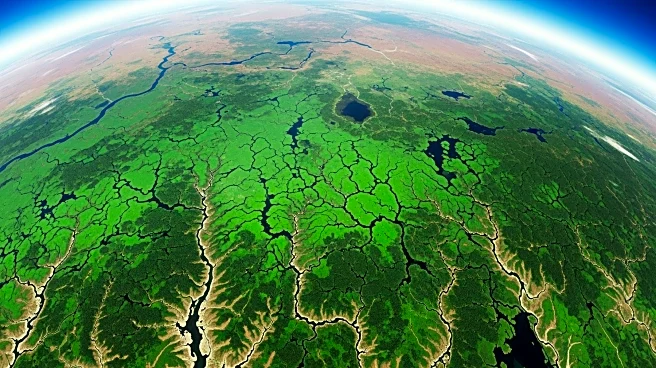What's Happening?
Landsat satellites play a crucial role in monitoring Earth's ecosystems, from forests to coral reefs, supporting wildlife and human communities. Landsat instruments measure reflected light in visible and infrared
wavelengths, allowing scientists to assess plant health and density over landscapes. This data helps expand interpretations of local events to regional scales, aiding in ecosystem management. Landsat's accurate mapping and integration with other geographic data sets enable complex studies of ecosystems and biodiversity across space and time. Since 1972, Landsat has provided valuable data for ecosystem studies, with the U.S. Geological Survey offering this data to the public at no cost.
Why It's Important?
The ability to monitor ecosystems and biodiversity is vital for maintaining environmental health and supporting human life. Landsat's data helps in understanding ecosystem dynamics, which is essential for conservation efforts and sustainable resource management. By providing detailed insights into ecosystem health, Landsat supports efforts to protect biodiversity, manage natural resources, and mitigate the impacts of climate change. This data is crucial for policymakers, researchers, and conservationists working to preserve the planet's ecosystems.










